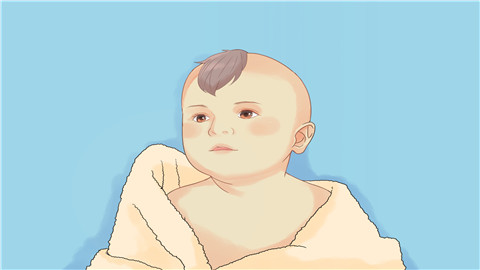Why do newborns develop jaundice?
Generally, the main causes of jaundice in newborns include excessive bilirubin production, weak liver metabolism of bilirubin, breast milk jaundice, neonatal hemolytic disease, and neonatal sepsis. If discomfort symptoms occur, it is recommended to seek timely medical treatment at a regular hospital. Detailed explanations are as follows:
1. Excessive bilirubin production
Newborns have a high number of red blood cells with short lifespans. When these cells break down, they produce a large amount of bilirubin, exceeding the body's metabolic capacity, leading to jaundice. It is important to enhance feeding and increase the frequency of bowel movements to promote bilirubin excretion. If bilirubin levels are significantly elevated, phototherapy under blue light may be administered under a doctor's guidance to help reduce bilirubin levels.
2. Weak liver metabolism of bilirubin
The liver of a newborn is not fully developed, and the enzymes involved in bilirubin metabolism have low activity, making it unable to promptly convert bilirubin into a form that can be excreted, thus causing jaundice. Close monitoring of bilirubin changes is necessary in daily care, ensuring sufficient sleep for the newborn to promote liver development. If necessary, phenobarbital tablets may be used under medical guidance to enhance the liver's ability to metabolize bilirubin.

3. Breast milk jaundice
Certain components in breast milk may affect bilirubin metabolism, resulting in prolonged jaundice; however, the general condition of the newborn is usually good. If bilirubin levels have not reached dangerous values, breastfeeding can be continued while increasing feeding frequency. If bilirubin levels are excessively high, breastfeeding should be temporarily stopped for 1-3 days, replaced with formula feeding, and gradually resumed after bilirubin levels decrease.
Blood type incompatibility between mother and infant leads to extensive destruction of red blood cells, producing excessive bilirubin and causing jaundice. Intravenous immunoglobulin may be administered under medical guidance to inhibit the hemolytic reaction. If anemia is severe, exchange transfusion may be required to replace abnormal red blood cells and excessive bilirubin, along with phototherapy to lower bilirubin levels.
5. Neonatal sepsis
Infection by pathogens such as bacteria can cause sepsis, which may impair liver function, leading to bilirubin metabolic disorders and worsening jaundice. Antibiotic treatment should be administered under medical guidance, such as Cefotaxime Sodium Injection, Ampicillin Sodium Injection, and Penicillin Sodium Injection, to control the infection.
In daily life, closely observe changes in the newborn's skin and scleral jaundice; ensure adequate feeding to promote urination and defecation; maintain good indoor air circulation and prevent the newborn from catching a chill; regularly monitor the newborn's weight, temperature, and other indicators. If jaundice worsens or persists, seek medical attention promptly.




